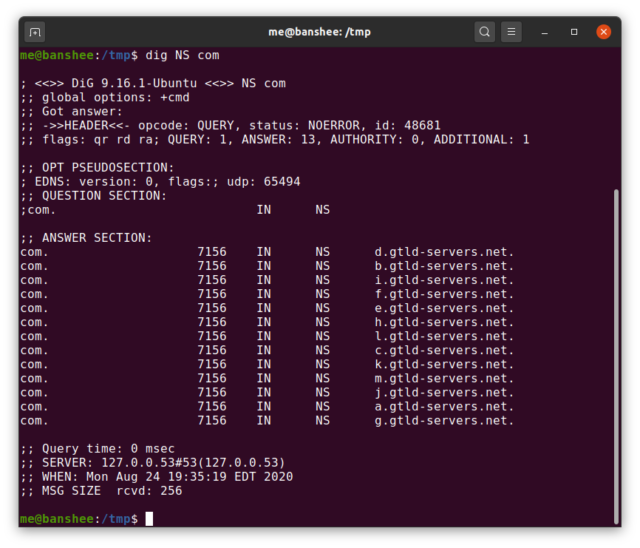A Chrome feature is creating enormous load on global root DNS servers
The Chromium browser-open source, upstream parent to both Google Chrome and the new Microsoft Edge-is getting some serious negative attention for a well-intentioned feature that checks to see if a user's ISP is "hijacking" non-existent domain results.
The Intranet Redirect Detector, which makes spurious queries for random "domains" statistically unlikely to exist, is responsible for roughly half of the total traffic the world's root DNS servers receive. Verisign engineer Matt Thomas wrote a lengthy APNIC blog post outlining the problem and defining its scope.
How DNS resolution normally works
These systems are the final authority for resolving any .com or .net domains. (credit: Jim Salter)
DNS, or the Domain Name System, is how computers translate relatively memorable domain names like arstechnica.com into far less memorable IP addresses, like 3.128.236.93. Without DNS, the Internet couldn't exist in a human-usable form-which means unnecessary load on its top-level infrastructure is a real problem.
Read 18 remaining paragraphs | Comments